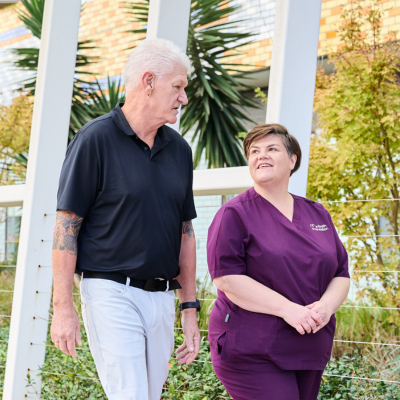
Stories & reports
Find our latest news or read personal stories to learn more about the difference the care of a McGrath Cancer Care Nurse makes.
Latest news
What would you like to read?
Stay up to date on our latest news. Read about the care our nurses have provided those experiencing cancer. Or, be inspired by how some of our supporters have chosen to fundraise for us.
Stories & news
Our most read stories
See what others are reading and be inspired by stories from our fundraisers and those supported by a McGrath Cancer Care Nurse.










)
